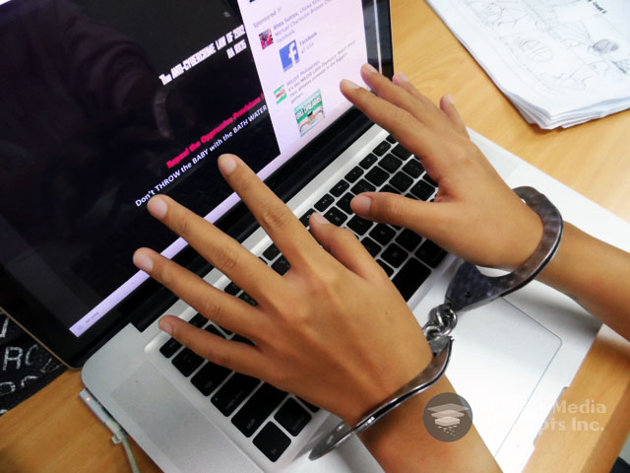Internet bullies out there must take precaution about their posts in the internet especially in some social media website like Facebook and Twitter.
Recently The Supreme Court approved the controversial Republic Act No. 10175 or Cyber crime Prevention Act that criminalizes online libel.
 In a press conference, SC spokesman Theodore Te said section 4 (c) (4) of the Anti-Cybercime Act, or the provision penalizing libel – is constitutional “with respect to the original author of the post.”
In a press conference, SC spokesman Theodore Te said section 4 (c) (4) of the Anti-Cybercime Act, or the provision penalizing libel – is constitutional “with respect to the original author of the post.”
This approval was voted by the high officers of the Supreme Court.
As seen in the Section 4 (c) (4) of the law, which penalizes acts of libel as defined in Article 355 of the Revised Penal Code (RPC) committed through a computer system.
The law takes effect only to the person who post malicious comments to the internet, but those netizens who reacts and comments to the currents post will not be penalize by the law.
But forwarding, commenting, sharing or retweeting of the said harsh post are need to be clarified by the court.
Accosiate Justice Roberto Abad declares the Section 5 of RA 10175 constitutional its scope are the aiding and abetting of the commission of cybercrime, in relation to the commission of: Illegal Access, Illegal Interception, Data Interference; System Interference; Misuse of Devices; Cyber-squatting; Computer-related Offenses such as Computer-related Forgery and Computer-related Identity Theft; and Cybersex.
But there are some provisions of RA 10175 are not binding like crimes of child pornography, unsolicited commercial communications and online libel.
RA 10175 should be legal and binding on October 2012, but it was postpone due to the Supreme Court impose a 120 days Temporary Restraining Order or “TRO” prior to its implementation.
This controversial law must be fully aired to the public to avoid misconception in the minds of the people.







